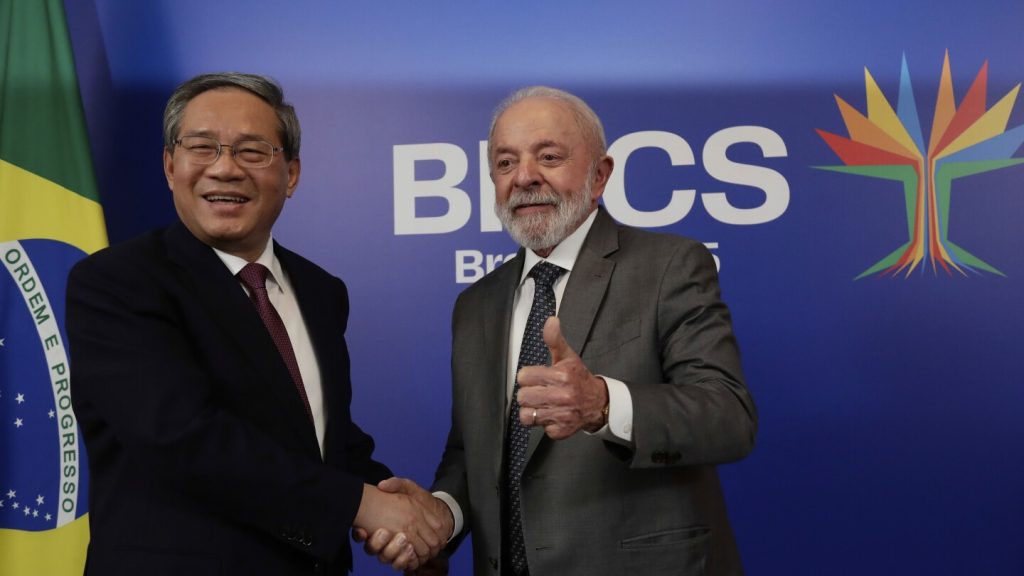RIO DE JANEIRO (AP) — Brazil will host a BRICS summit on Sunday and Monday, addressing significant issues such as Israel’s actions against Iran, the humanitarian situation in Gaza, and trade tariffs imposed by former U.S. President Donald Trump. The discussions are expected to be approached with caution.
Experts and diplomats have noted that the recent expansion of BRICS, which doubled in size last year, may hinder its capability to assert itself as a major player in global affairs. They view the moderate agenda of this summit as a strategy to avoid attracting the attention of Trump.
Brazilian President Luiz Inácio Lula da Silva will prioritize discussions on topics like artificial intelligence and climate change, though key leaders such as China’s President Xi Jinping will not attend for the first time since taking office in 2012. Russian President Vladimir Putin, participating via videoconference, has largely refrained from traveling due to an international arrest warrant stemming from Russia’s actions in Ukraine.
Discussion on Controversial Issues
The expected restraint in Rio marks a shift from last year’s meeting in Kazan, hosted by Russia, which aimed to create alternatives to U.S.-led financial systems to evade Western sanctions. A source familiar with the talks revealed that some members desire more assertive statements regarding Gaza and Israel’s actions against Iran, but Brazil aims for a technical focus.
Consequently, observers predict a vague final declaration on issues like Russia’s war in Ukraine and Middle Eastern conflicts. The absence of prominent leaders like Xi and Putin, who advocate for a stronger anti-Western stance, may facilitate a more neutral statement from Brazil and India, who prefer a position of non-alignment.
Brazil’s Concerns Amidst Trump’s Tariff Threats
As the chair of BRICS, Brazil has set six strategic priorities for the summit: global health cooperation, trade and investment, climate change, AI governance, peace and security, and institutional development. In light of Trump’s return to power, Brazil has opted to emphasize less controversial matters to safeguard its economy from potential tariffs.
Brazil aims to avoid being targeted by trade penalties, as Trump has threatened to enforce 100% tariffs against the bloc if any actions are perceived as undermining the dollar.
Notable Absentees
Among the notable absentees are Iranian President Masoud Pezeshkian and Egypt’s Abdel-Fattah el-Sissi, who joined BRICS in 2024, along with countries like Ethiopia and Indonesia. Saudi Arabia has been invited but has yet to confirm its participation. BRICS has also expanded to include ten strategic partners, including Belarus and Vietnam.
Despite some absences, the summit holds significance for attendees, especially regarding instability caused by Trump’s tariff policies. It presents an opportunity for emerging nations to explore alternatives and diversify their economic ties, which is particularly beneficial for Lula amidst domestic challenges.
The summit also provides a platform to enhance climate commitments ahead of COP 30 climate discussions scheduled for November in the Amazonian city of Belem.



